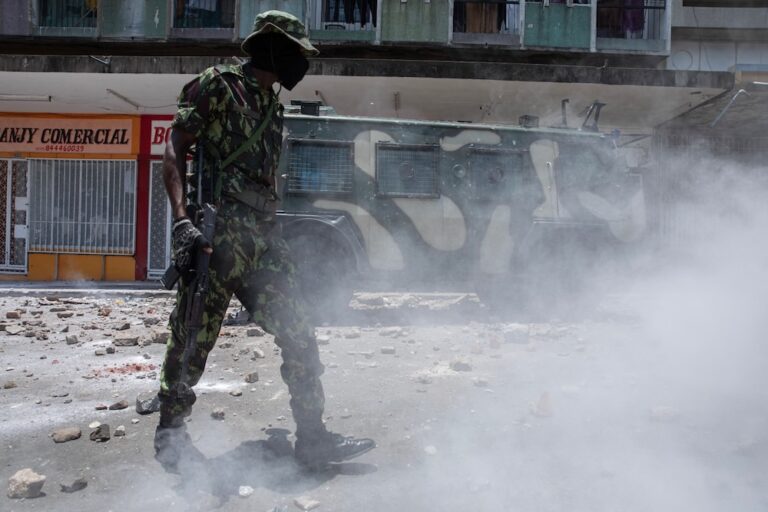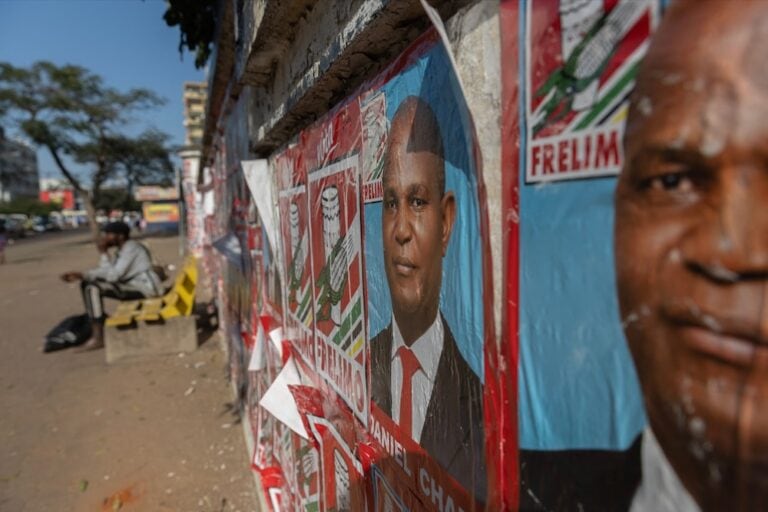Reporters Without Borders plead with Mozambican authorities to share information on the whereabouts of journalist Ibraimo Abu Mbaruco, allegedly abducted by soldiers in early April from the restive province of Cabo Delgado.
This statement was originally published on rsf.org on 17 April 2020.
Reporters Without Borders (RSF) calls on the Mozambican authorities to shed all possible light on a community radio journalist’s disappearance ten days ago in Cabo Delgado, a province in the far northeast of the country with an Islamist insurgency. He reported being surrounded by soldiers shortly before he went missing.
A reporter for Rádio Comunitária de Palma, a community radio station in Palma, a remote coastal town near the Tanzanian border, Ibraimo Abu Mbaruco disappeared shortly after leaving the radio station to go home on the evening of 7 April. Neither his family nor his colleagues have heard from him since then. In his last message, sent to a colleague whom RSF has contacted, Mbaruco said he was “surrounded by military.” The Mozambican branch of the Media Institute of Southern Africa (MISA) said its investigation in the region indicated that he was abducted by the army. An anonymous source within the security forces said he thought Mbaruco was taken to Mueda, a city 180 km southwest of Palma where the army has installations suitable for conducting interrogations. According to Zitamar News, a reliable local news website, soldiers abducted many other people on the day Mbaruco disappeared.
Mbaruco’s family reported his disappearance immediately to the local authorities and a report was filed with the provincial prosecutor’s office on 14 April. The police in Palma say that he is not in the local prison and that they have no confirmation of the family’s fears that he is dead. All the region’s security forces have been mobilized to look for him, the local police say. Neither the army nor the political authorities have so far reacted to all the expressions of concern about his disappearance.
The past few weeks have seen a wave of clashes between the army and the Islamist rebels, who have had a presence in the province since 2007. Hundreds of people have died in the fighting and the authorities have done everything possible to prevent journalists from entering the region in order to cover the situation.
“The information gathered so far indicates that soldiers witnessed this journalist’s disappearance and may have been involved,” said Arnaud Froger, the head of RSF’s Africa desk. “The silence coming from the highest authorities is extremely worrying and we fear that he could suffer the same fate as other journalists, who were held incommunicado for months last year for covering the violence in northern Mozambique.” Froger added: “It is essential that Mozambique’s military and political authorities shed all possible light on this case and that this journalist should be released, if he is indeed being held. Turning this violence-torn province into a black hole for news and information will not help to end the insurrection.”
Few journalists have ventured into Cabo Delgado province since Amade Abubacar and Germano Daniela Adriano, two journalists working for local radio and TV station Nacedje in the town of Macomia, were detained in a completely illegal manner by the army for several months in early 2019. Since their release almost exactly a year ago, they have continued to be charged with “spreading messages damaging to the Mozambican Armed Forces.”
Just three days ago, on 14 April, Izidine Acha, a reporter for the privately-owned TV channel STV, was arrested by the police in Pemba, the capital of Cabo Delgado province, and was forced to delete the footage he had filmed of a police operation. When released a few hours later, he was told to say nothing about his arrest.
The clampdown on information and arbitrary arrests in Cabo Delgado province are the main reason why Mozambique has fallen 18 places in RSF’s World Press Freedom Index since 2015 and is ranked 103rd out of 180 countries in the 2019 Index.



